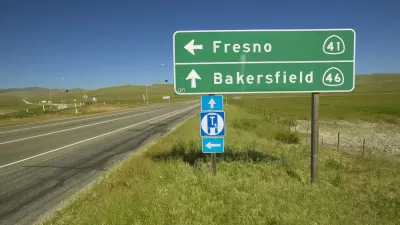No one expects the $8 billion to build any one single high-speed-rail system in the U.S. But the U.S., with its vast distances and low gas prices, is not Europe or Asia, and some question whether the investment will produce any substantial results.
"Some transportation researchers say a network of trains that can travel faster than 200 miles an hour is not feasible in the United States. They say the high price tag for building and operating a super-fast system will be the biggest deterrent.
And much like Amtrak's eight-year-old Acela Express, the only US high-speed rail, the trains would have to compete in a culture that prefers cars and planes.
"We have tremendous distances compared with Japan or Europe," said Carlos Schwantes, a professor of transportation studies at the University of Missouri-St. Louis. "We're just much bigger, and in so much of the country it's so low a population density that we'd have to ask the question: Is it worth spending our dollars for the infrastructure in those areas?"
High-speed rail systems, which have been slow to catch on here, took off abroad with the help of huge government subsidies and gas prices that were more than double what American drivers were paying when prices here peaked last year, transportation researchers say."
"Spread out over the country, $8 billion will be an important amount of money to advance the engineering and design," said Peter Gertler, national public transit services director with HNTB, an engineering and architectural firm that has been involved in the Midwest high-speed rail project. But going forward, he said, high-speed rail authorities "will need more local funding at the private and state levels."
Thanks to Bay Area Transportation News
FULL STORY: Will stimulus funds put rail on the fast track?

Maui's Vacation Rental Debate Turns Ugly
Verbal attacks, misinformation campaigns and fistfights plague a high-stakes debate to convert thousands of vacation rentals into long-term housing.

Planetizen Federal Action Tracker
A weekly monitor of how Trump’s orders and actions are impacting planners and planning in America.

Chicago’s Ghost Rails
Just beneath the surface of the modern city lie the remnants of its expansive early 20th-century streetcar system.

Bend, Oregon Zoning Reforms Prioritize Small-Scale Housing
The city altered its zoning code to allow multi-family housing and eliminated parking mandates citywide.

Amtrak Cutting Jobs, Funding to High-Speed Rail
The agency plans to cut 10 percent of its workforce and has confirmed it will not fund new high-speed rail projects.

LA Denies Basic Services to Unhoused Residents
The city has repeatedly failed to respond to requests for trash pickup at encampment sites, and eliminated a program that provided mobile showers and toilets.
Urban Design for Planners 1: Software Tools
This six-course series explores essential urban design concepts using open source software and equips planners with the tools they need to participate fully in the urban design process.
Planning for Universal Design
Learn the tools for implementing Universal Design in planning regulations.
planning NEXT
Appalachian Highlands Housing Partners
Mpact (founded as Rail~Volution)
City of Camden Redevelopment Agency
City of Astoria
City of Portland
City of Laramie




























